- Home
- Holly Black
The Poison Eaters and Other Stories Page 25
The Poison Eaters and Other Stories Read online
Page 25
Page 25
"Excuse me,” said a girl with long wine-colored hair. “Are you human?"
He froze, suddenly conscious of the jagged edges of what he held. “I'm supposing I misheard you. ” He set the porcelain fragment down discreetly on the counter.
"You're one of them, aren't you? I knew it!” A huge smile split her face and she looked back eagerly toward a table of grinning humans. “Can you grant wishes?"
Roiben looked at Corny, busy frothing milk. “Cornelius,” he said softly. “Um. "
Corny glanced over. “If, for once, you just act like my best friend's boyfriend and take her order, I promise to be nicer to you. Nice to you, even. "
Roiben touched a key on the register. “I'll do it if you promise to be more afraid of me. "
"I envy what I fear and hate what I envy,” Corny said, slamming an iced latte on the counter. “More afraid equals more of a jerk. "
"What is it you'd like?” Roiben asked the girl. “Other than wishes. "
"Soy mocha,” said the girl. “But please, there's so much I want to know. "
Roiben squinted at the scrawled menu on the chalkboard. “Payment, if you please. "
She counted out some bills and he took them, looking helplessly at the register. He hit a few buttons and, to his relief, the drawer opened. He gave her careful change.
"Please tell me that you didn't pay her in leaves and acorns,” Corny said. “Kaye keeps doing that and it's really not helping business. "
"I knew it!” said the girl.
"I conjured nothing,” Roiben said. “And you are not helping. "
Corny squirted out Hershey's syrup into the bottom of a mug. “Yeah, remember what I said about my idea to get Moon in a Cup more business?"
Roiben crossed his arms over his chest. “I do. "
"I might have posted online that this place has a high incidence of supernatural visitation. "
Roiben narrowed his eyes and tilted his head. “You claimed Kaye's coffee shop is haunted?"
The girl picked up her mocha from the counter. “He said that faeries came here. Real faeries. The kind that dance in mushroom circles and—"
"Oh, did he?” Roiben asked, a snarl in his voice. “That's what he said?"
Corny didn't want to be jealous of the rest of them.
He didn't want to spend his time wondering how long it would be before Luis got tired of him. Luis, who was going places while Corny helped Kaye open Moon in a Cup because he had literally nothing else to do.
Kaye ran the place like a pixie. It had odd hours—sometimes opening at four in the afternoon, sometimes opening at dawn. The service was equally strange when Kaye was behind the counter. A cappuccino would be ordered and chai tea would be delivered. People's change often turned to leaves and ash. Slowly—for survival—things evolved so that Moon in a Cup belonged to all of them. Val and Ruth worked when they weren't at school. Corny set up the wireless.
And Luis, who lived in the dorms of NYU and was busy with a double major and flirting with a future in medicine, would come and type out his long papers at one of the tables to make the place look more full.
But it wouldn't survive like that for long, Corny knew. Everything was too precarious. Everyone else had too much going on. So he made the decision to run the ad. And for a week straight, the coffee shop had been full of people. They could barely make the drinks in time. So none of the others could be mad at him. They had no right to be mad at him.
He had to stay busy. It was the only way to keep the horrible gnawing dread at bay.
Roiben listened to Corny stammer through an explanation of what he had done and why without really hearing it.
Then he made himself tea and sat at one of the salvaged tables that decorated the coffeehouse. Its surface was ringed with marks from the tens of dozens of watery cups that had rested there and any weight made the whole thing rock alarmingly. He took a sip of the foxglove tea—brewed by his own hand to be strong and bitter.
Val had come in during Corny's explanation, blanched, and started sweeping the floor. Now she and Corny whispered together behind the counter, Val shaking her head.
Faeries had, for many years, relied on discretion. Roiben knew the only thing keeping Corny from torment at the hands of the faeries who must have seen his markedly indiscreet advertisement was the implied protection of the King of the Unseelie Court. Roiben knew it and resented it.
It would be an easy thing to withdraw his protection. Easy and perhaps just.
As he considered that, a woman's voice behind him rose, infuriating him further. “Well, you see, my family has always been close to the faeries. My great great great great grandmother was even stolen away to live with them. "
Roiben wondered why mortals so wanted to be associated with suffering that they told foolish tales. Why not tell a story where one's grandmother died fat, old and beloved by her dozen children?
"Really?” the woman's friend was saying. “Like Robert Kirk on the faerie hill?"
"Exactly,” said the woman. “Except that Great Grandma Clarabelle wasn't sleeping outdoors and she was right here in New York State. She got taken out of her own bed! Clarabelle had just given birth to a stillborn baby and the priest came too late to baptize her. No iron over the doors. "
It happened like that sometimes, he had to concede.
"Oh,” her friend said, shaking her head. “Yes, we've forgotten about iron and salt and all the other protections. "
Clara. For a moment, thoughts of Corny and his betrayal went out of Roiben's head completely. He knew that name. And although there have been dozens upon dozens of Claras who have come into the world, in that moment, he knew the women were telling a true story. A story he knew. It shamed him that he had dismissed them so easily for being foolish. Even fools tell the truth. Historically, the truth belongs especially to fools.
"Excuse me,” Roiben said, turning in his chair. “I couldn't help overhearing. "
"Do you believe in faeries?” she asked him, seeming pleased.
"I'm afraid I must,” he said, finally. “May I ask you something about Clara?"
"My great great aunt,” the woman said, smiling. “I'm named after her. I'm Clarabella. Well, it's really my middle name, but I still—"
"A pleasure to make your acquaintance,” he said, extending his hand to shake hers. “Do you happen to know when your Clara went missing?"
"Some time in the eighteenth century, I guess,” she said. Her voice slowed as she got to the end of the sentence, as though she'd become wary. Her smile dimmed. “Is something the matter?"
"And did she have two children?” he asked recklessly. “A boy named Robert and a girl named Mary?"
"How could you have known that?” Clarabella said, her voice rising.
"I didn't know it,” Roiben said. “That is the reason I asked. "
"But you—you shouldn't have been able to—"
Everyone in the coffeeshop was staring at them now. Roiben perceived a goblin by the door, snickering as he licked chocolate icing from his fingers.
Her friend put a hand on Clarabella's arm. “He's one of the fair folk,” she said, hushed. “Be careful. He might want to steal you, too. "
Roiben laughed, suddenly, but his throat felt full of thorns.
It is eternal summer in the Seelie Court, as changeless as faeries themselves. Trees hang eternally heavy with golden fruit and flowering vines climb walls to flood bark-shingled roofs with an endless rain of petals.
Roiben recalled being a child there, growing up in indolent pleasure and carelessness. He and his sister Ethine lived far from the faeries who'd sired them and thought no more of them than they thought of the sunless sky or of the patterns that the pale fishes in the stream made with their mad darting.
They had games to amuse themselves with. They dissected grasshoppers, they pulled the wings from moths and sewed them to the backs of toads to see if t
hey could make the toads fly. And when they tired of those games they had a nurse called Clara with which to play.
She had mud brown hair and eyes as green as wet pools. In her more lucid moments, she hated her faerie charges. She must have known that she had been stolen away from home, from her own family and children, to care for beings she considered little better than soulless devils. When Ethine and Roiben would clamour for her lap, she thrust them away. When they teased her for her evening prayers, she described how their skin would crackle and smoke, as they roasted in hell after the final judgment day.
She could be kind, too. She taught them songs and chased them through meadows until they shrieked with laughter. They played fox and geese with acorns and holes dug by their fingers in the dirt. They played charades and forfeits. They played graces with hoops and sticks woven from willow trees. And after, Clara washed their dirty cheeks with her handkerchief, dipped in the water of the stream, and made up beds for them in the moss.
And when she kissed their clean faces and bid them goodnight, she would call them Robert and Mary. Her lost children. The children that she had been enchanted to think they were.
Roiben did not remember pitying Clara then, although thinking back on it, he found her pitiable. He and Ethine were young and their love for her was too selfish to want anything more than to be loved best. They hated being called by another's name and pinched her in punishment or hid from her until she wept.
One day, Ethine said that she'd come up with a plan to make Clara forget all about Robert and Mary. Roiben gathered up the mushrooms, just as his sister told him.
He didn't know that what was wholesome to him might poison Clara.
They killed her, by accident, as easily as they had pulled the wings from the moth or stabbed the grasshopper. Eventually, their faerie mother came and laughed at their foolishness and staged a beautiful funeral. Ethine had woven garlands to hang around the neck of Clara's corpse and no one washed their cheeks, even when they got smeared with mud.

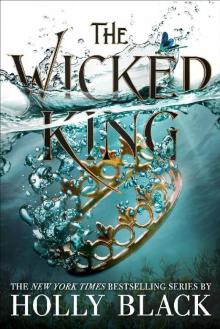 The Wicked King (The Folk of the Air #2)
The Wicked King (The Folk of the Air #2)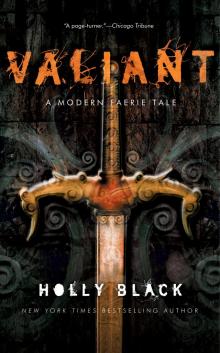 Valiant
Valiant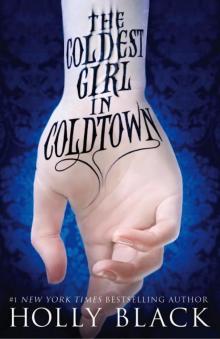 The Coldest Girl in Coldtown
The Coldest Girl in Coldtown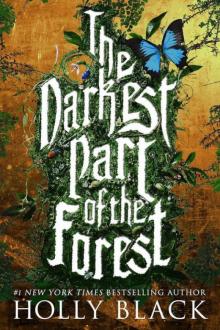 The Darkest Part of the Forest
The Darkest Part of the Forest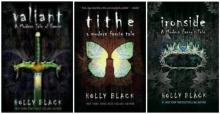 Tithe
Tithe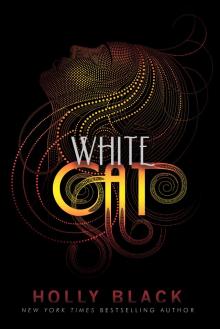 White Cat
White Cat Red Glove
Red Glove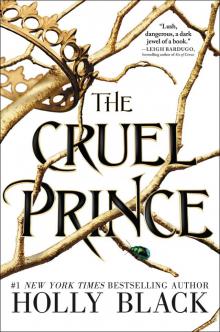 The Cruel Prince
The Cruel Prince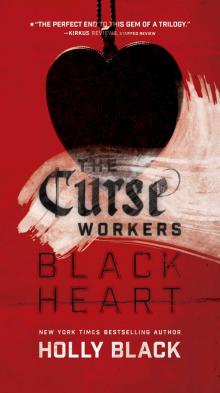 Black Heart
Black Heart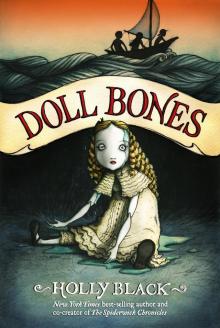 Doll Bones
Doll Bones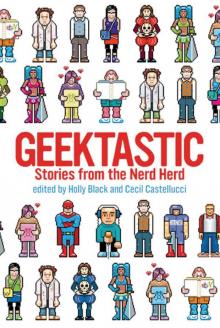 Geektastic: Stories from the Nerd Herd
Geektastic: Stories from the Nerd Herd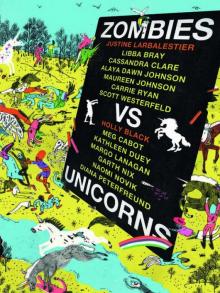 Zombies Vs. Unicorns
Zombies Vs. Unicorns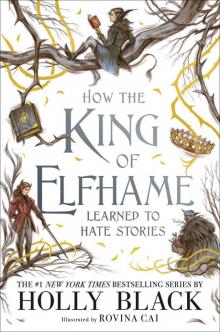 How the King of Elfhame Learned to Hate Stories
How the King of Elfhame Learned to Hate Stories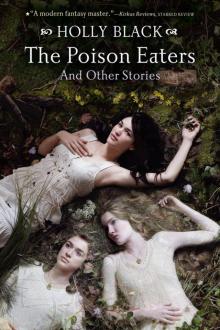 The Poison Eaters and Other Stories
The Poison Eaters and Other Stories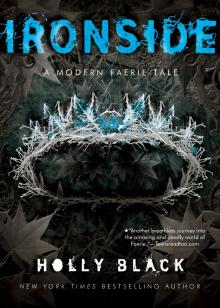 Ironside
Ironside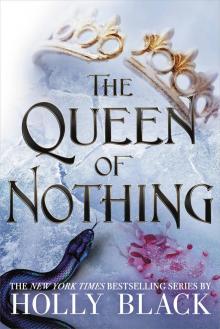 The Queen of Nothing
The Queen of Nothing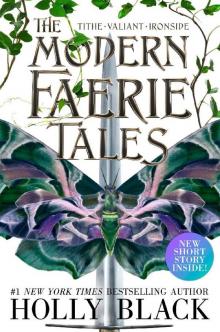 Modern Faerie Tales
Modern Faerie Tales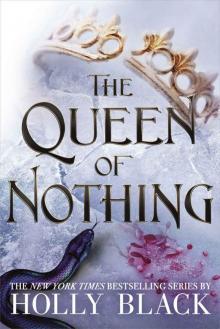 The Queen of Nothing (The Folk of the Air #3)
The Queen of Nothing (The Folk of the Air #3)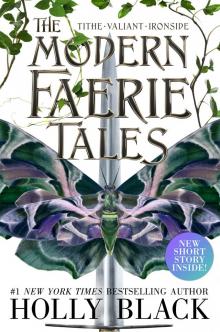 The Modern Faerie Tales
The Modern Faerie Tales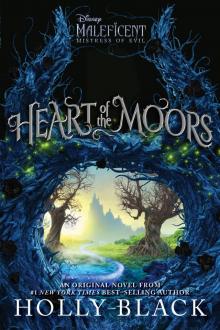 Heart of the Moors
Heart of the Moors The Golden Tower
The Golden Tower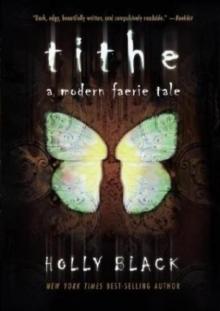 Tithe mtof-1
Tithe mtof-1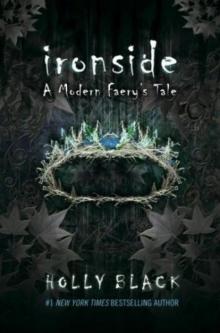 Ironside mtof-3
Ironside mtof-3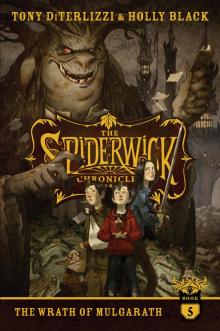 The Wrath of Mulgarath
The Wrath of Mulgarath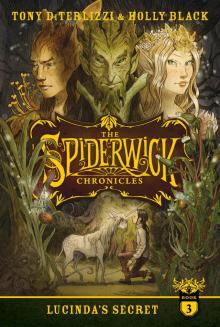 Lucinda's Secret
Lucinda's Secret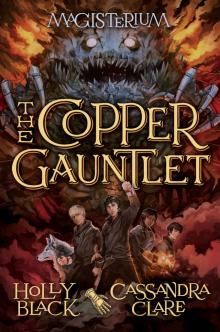 The Copper Gauntlet
The Copper Gauntlet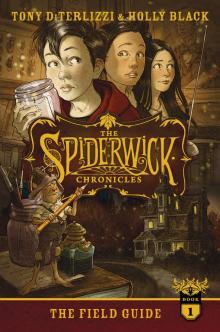 The Field Guide
The Field Guide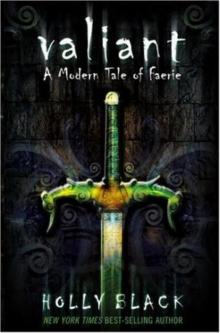 Valiant mtof-2
Valiant mtof-2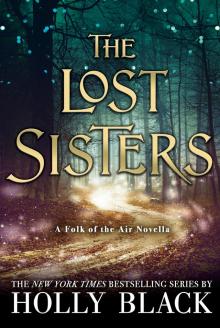 The Lost Sisters
The Lost Sisters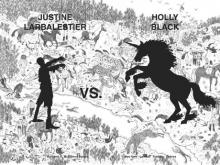 Zombies vs. Unicorns
Zombies vs. Unicorns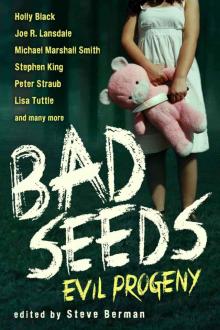 Bad Seeds: Evil Progeny
Bad Seeds: Evil Progeny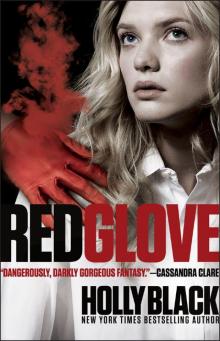 Red Glove (2)
Red Glove (2)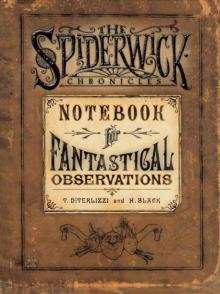 Notebook for Fantastical Observations
Notebook for Fantastical Observations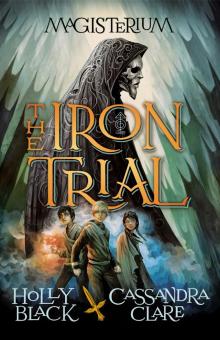 The Iron Trial
The Iron Trial Welcome to Bordertown
Welcome to Bordertown